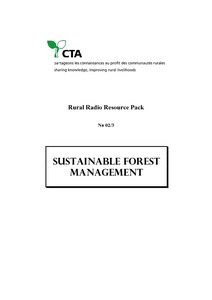New sources of resources
The project manager at Kalup National Park in Cameroon explains how local rainforest communities, who have lost their access to the park are being supported in finding new ways to earn income, and how the project is making them aware of the need to manage their community forests sustainably.


